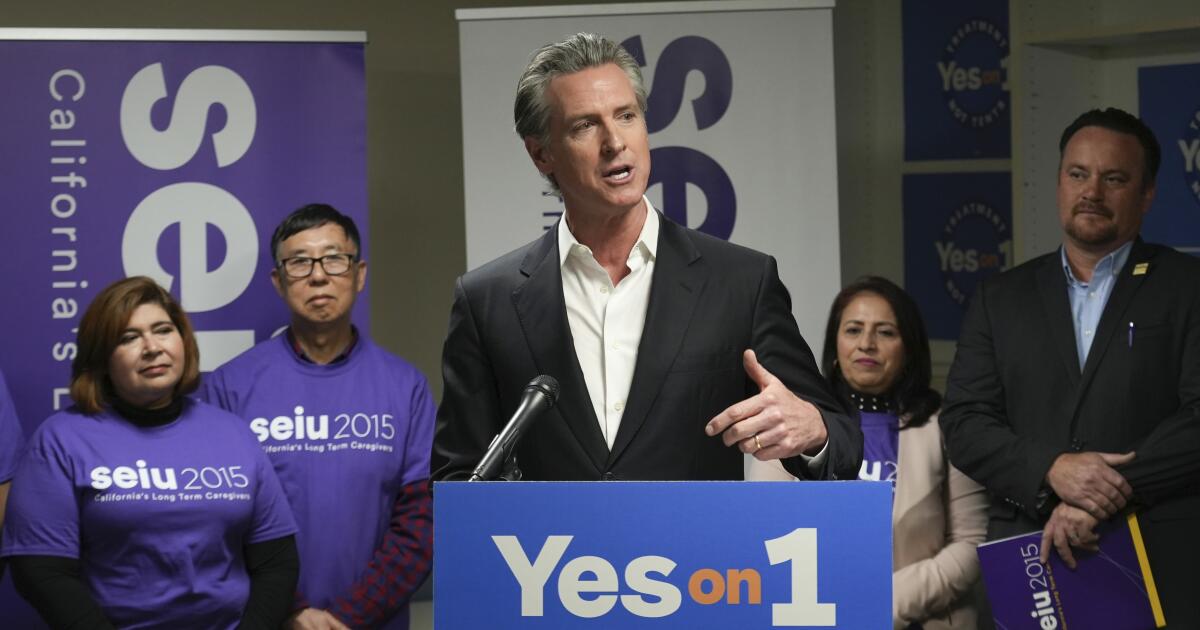Prop 1 would fund a $6.4 billion bond, of which $4.4 billion would go to sharply increasing the availability of substance abuse treatment, while the rest would build permanent supportive housing for unhoused folks. Half of that would go to housing for veterans with mental illness or addiction.
Nice to see that the opposition did as well as they did, historically sending cops after homeless people is a big winner at the polls but maybe a new generation of voters will be able to get us past that kind of thing some day
Civil rights organizations and advocates for the disabled community opposed the measure and raised alarm bells in 2023 over a last-minute change to Proposition 1 that allows counties to use the bond money for “locked facilities,” where patients cannot voluntarily leave.
American Civil Liberties Unions in California and League of Women Voters of California urged voters to reject the measure, arguing that community mental health services are more effective than institutionalization.
“I think the governor and mayors often just want the encampments to disappear by any means necessary,” said Katherine Wolf, a doctoral student in society and environment at UC Berkeley, who said she voted against Proposition 1.
Wolf said she believes that community programs that provide stability to some mentally ill Californians will lose funding if money shifts to involuntary treatment. Similar to the ACLU and League of Women Voters, she also opposes forcing people into care.
“For them to sneak it in at the last minute after promising all summer that the bond would only be used for community-based voluntary unlocked treatment, I think is really underhanded and I think they did it specifically to avoid objections from the groups and people who they knew would object,” Wolf said
Oh, crap. I voted for this, and I didn’t realize this happened. I’m in favor of more housing across the board, but shifting the money to locked psych facilities just to add more three day hold capacity is not what I meant to vote for.
I get where you’re coming from. The issue in California is other states shipping their “undesirables” in because it’s in large part habitable through the year outside. I’m against what is the new asylum system as well, but there are thousands of people here who need legitimate help. What do we do about it?
The tl;Dr answer is build more housing. The long answer is that we need better urbanism. Our cities are awful, and have been for a long time, and the best and worst part is that it’s a consequence of seventy years of deliberate and terrible policy choices. It’s terrible because we’ve been choosing for almost a century to have the shittiest cities in the developed world while thinking that it’s completely normal. It’s great because the problem really is as simple as working to reverse these policy choices and their consequences.
This subject really deserves its own book (or even series), but the series that NotJustBikes did with StrongTowns is a good place to start.
https://youtube.com/playlist?list=PLJp5q-R0lZ0_FCUbeVWK6OGLN69ehUTVa&si=R2TD6rICxWvUAIvs
We can have more affordable, more livable cities, it’s just a matter of making those choices. The great news is that for most Americans, these aren’t policy choices that are as out of reach as, say, universal healthcare. A lot of these policies are controlled at a municipal or county level, and can be affected by your city council. Try showing up to a meeting once in a while and making a public comment; they don’t know what people want without us telling them, and the people who want awful cities are vastly overrepresented. It’s easier than you think and the cops can’t stop you.
Affordable housing is key. Homeless people are homeless for a variety of reasons and there’s not a one size fits all solution. However, the greater part (statistics vary, but they are the majority) of homelessness is caused by unaffordable housing which is a result of both low wages and overpriced housing.
You’re proving my point as well.
Can you explain what you mean? I don’t think I understand
Can you get explain? I don’t think I get what you mean?
Burrito
Asylums and care facilities that you cannot leave are not inherently bad. I was made to stay in one for a few days in my early twenties, against my will. But it was a valuable few days, and as much as I wanted out it was, overall, a positive experience that benefited me.
There are people who need care in facilities they cannot leave. Those facilities must be regulated and held to a high standard, but psych facilities need to exist.
Civil rights organizations and advocates for the disabled community opposed the measure and raised alarm bells in 2023 over a last-minute change to Proposition 1 that allows counties to use the bond money for “locked facilities,” where patients cannot voluntarily leave.
I don’t know how to feel about this. On the one hand, this seems like a clear violation of personal rights. On the other hand, without some sort of detainment mechanism, I don’t see how any program would help drug addicts who aren’t interested in recovery.
Isnt this like the 4th Prop 1 in California in 5 years
Prop 1 is just the first proposition on that ballot. It gets reused every time. It’s preferable to reference the actual title of the proposition, rather than just saying Prop 1.




